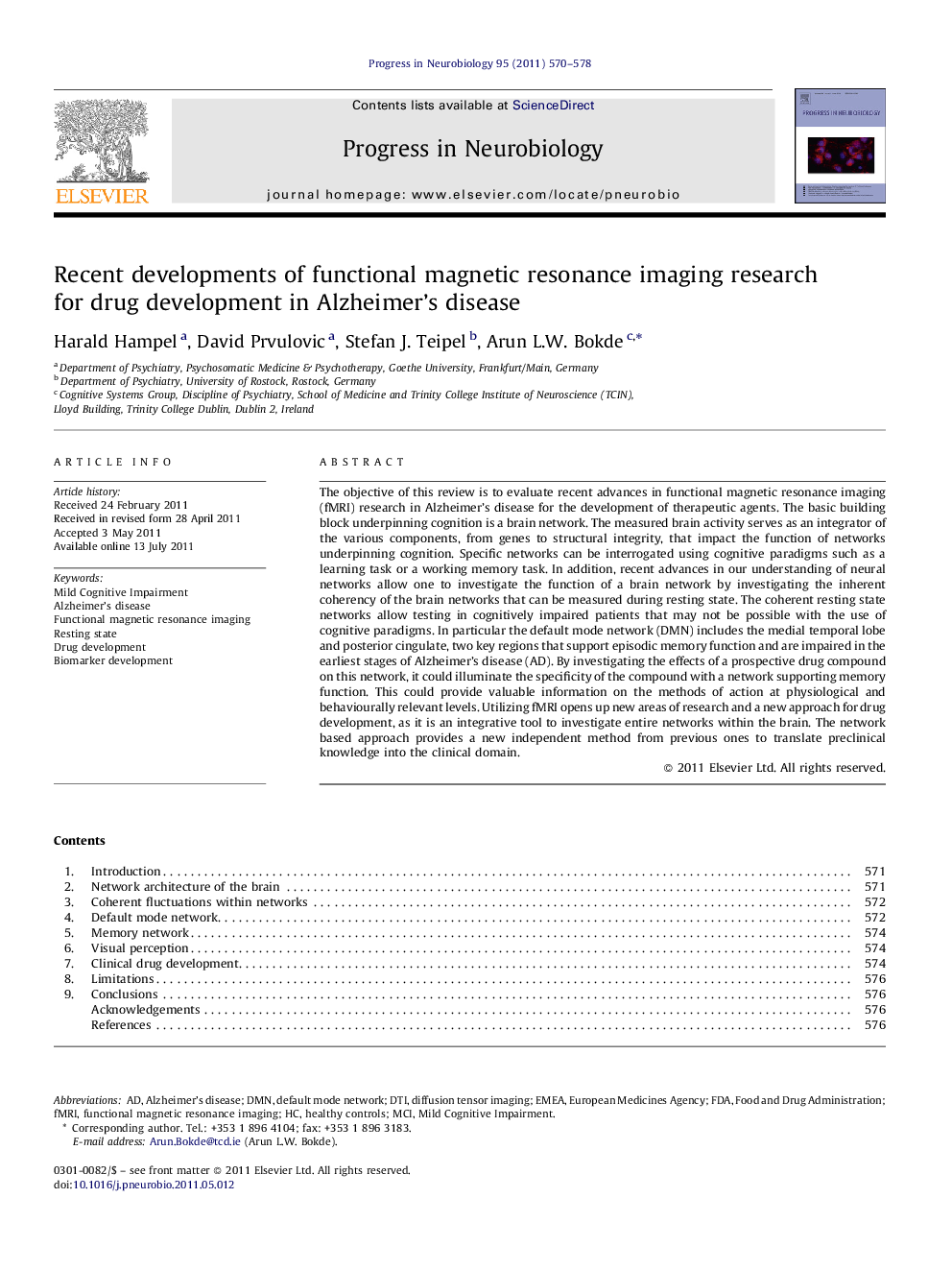| Article ID | Journal | Published Year | Pages | File Type |
|---|---|---|---|---|
| 4353502 | Progress in Neurobiology | 2011 | 9 Pages |
The objective of this review is to evaluate recent advances in functional magnetic resonance imaging (fMRI) research in Alzheimer's disease for the development of therapeutic agents. The basic building block underpinning cognition is a brain network. The measured brain activity serves as an integrator of the various components, from genes to structural integrity, that impact the function of networks underpinning cognition. Specific networks can be interrogated using cognitive paradigms such as a learning task or a working memory task. In addition, recent advances in our understanding of neural networks allow one to investigate the function of a brain network by investigating the inherent coherency of the brain networks that can be measured during resting state. The coherent resting state networks allow testing in cognitively impaired patients that may not be possible with the use of cognitive paradigms. In particular the default mode network (DMN) includes the medial temporal lobe and posterior cingulate, two key regions that support episodic memory function and are impaired in the earliest stages of Alzheimer's disease (AD). By investigating the effects of a prospective drug compound on this network, it could illuminate the specificity of the compound with a network supporting memory function. This could provide valuable information on the methods of action at physiological and behaviourally relevant levels. Utilizing fMRI opens up new areas of research and a new approach for drug development, as it is an integrative tool to investigate entire networks within the brain. The network based approach provides a new independent method from previous ones to translate preclinical knowledge into the clinical domain.
► Functional magnetic resonance imaging provides valuable insight between drug action and disease phenotypes. ► Using a neural networks based approach provides a new independent method from previous ones to translate preclinical knowledge into in the clinical domain. ► The default mode network offers the possibility to investigate medial temporal lobe function, key regions supporting memory function, in Alzheimer's disease patients without the use of a cognitive paradigm. ► Development of mathematical and analytical models could provide a significant boost to increase the efficiency and effectivity of functional magnetic resonance imaging in the development of new compounds.
